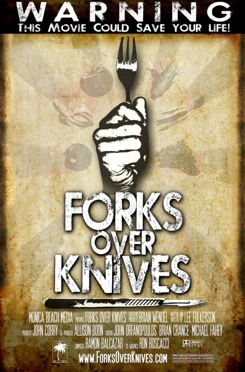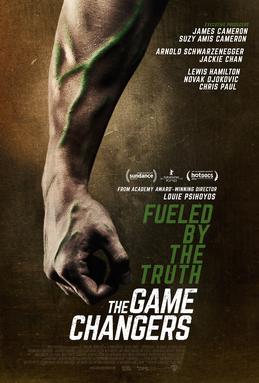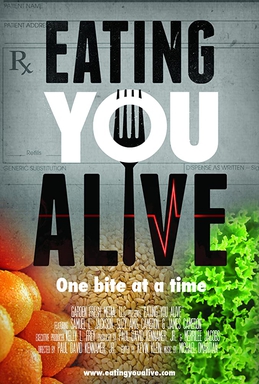
Veganism is the practice of abstaining from the use of animal product—particularly in diet—and an associated philosophy that rejects the commodity status of animals. An individual who follows the diet or philosophy is known as a vegan. Distinctions may be made between several categories of veganism. Dietary vegans, also known as "strict vegetarians", refrain from consuming meat, eggs, dairy products, and any other animal-derived substances. An ethical vegan is someone who not only follows a plant-based diet but extends the philosophy into other areas of their lives, opposes the use of animals for any purpose, and tries to avoid any cruelty and exploitation of all animals including humans. Another term is "environmental veganism", which refers to the avoidance of animal products on the premise that the industrial farming of animals is environmentally damaging and unsustainable.

Vegetarianism is the practice of abstaining from the consumption of meat. It may also include abstaining from eating all by-products of animal slaughter.

Raw foodism, also known as rawism or a raw food diet, is the dietary practice of eating only or mostly food that is uncooked and unprocessed. Depending on the philosophy, or type of lifestyle and results desired, raw food diets may include a selection of fruits, vegetables, nuts, seeds, eggs, fish, meat, and dairy products. The diet may also include simply processed foods, such as various types of sprouted seeds, cheese, and fermented foods such as yogurts, kefir, kombucha, or sauerkraut, but generally not foods that have been pasteurized, homogenized, or produced with the use of synthetic pesticides, fertilizers, solvents, and food additives.

A plant-based diet is a diet consisting mostly or entirely of plant-based foods. Plant-based diets encompass a wide range of dietary patterns that contain low amounts of animal products and high amounts of plant products such as vegetables, fruits, whole grains, legumes, nuts and seeds. They do not need to be vegan or vegetarian but are defined in terms of low frequency of animal food consumption.

Environmental vegetarianism is the practice of vegetarianism when motivated by the desire to create a sustainable diet that avoids the negative environmental impact of meat production. Livestock as a whole is estimated to be responsible for around 15% of global greenhouse gas emissions. As a result, significant reduction in meat consumption has been advocated by, among others, the Intergovernmental Panel on Climate Change in their 2019 special report and as part of the 2017 World Scientists' Warning to Humanity.

A semi-vegetarian diet (SVD), also called a flexitarian, is one that is centered on plant foods with the occasional inclusion of meat. Flexitarian is a portmanteau of the words flexible and vegetarian, signifying its followers' less strict diet pattern when compared to (other) vegetarian pattern diets.

A low-carbon diet refers to making lifestyle choices related to food consumption to reduce resulting greenhouse gas emissions (GHGe). Choosing a low carbon diet is one facet of developing sustainable diets which increase the long-term sustainability of humanity.

Food, Inc. is a 2008 American documentary film directed by Robert Kenner and narrated by Michael Pollan and Eric Schlosser. It examines corporate farming in the United States, concluding that agribusiness produces food that is unhealthy in a way that is environmentally harmful and abusive of both animals and employees. The film received positive reviews and was nominated for several awards, including the Academy Award for Best Documentary Feature and the Independent Spirit Award for Best Documentary Feature.

Suzy Amis Cameron is an American environmental advocate, and a former actress and model.

Michael Herschel Greger is an American physician, author, and professional speaker on public health issues, best known for his advocacy of a whole-food, plant-based diet, and his opposition to animal-derived food products.

Forks Over Knives is a 2011 American advocacy film and documentary that advocates a low-fat, whole-food, plant-based diet as a way to avoid or reverse several chronic diseases. The film recommends avoiding overly refined and processed foods, including refined sugars, bleached flours, and oils, and instead eating whole grains, legumes, tubers, vegetables, and fruits.

Vegucated is a 2011 American documentary film that explores the challenges of converting to a vegan diet. It "follows three meat- and cheese-loving New Yorkers who agree to adopt a vegan diet for six weeks."
Jewish vegetarianism is a commitment to vegetarianism that is connected to Judaism, Jewish ethics or Jewish identity. Jewish vegetarians often cite Jewish principles regarding animal welfare, environmental ethics, moral character, and health as reasons for adopting a vegetarian or vegan diet.

Cowspiracy: The Sustainability Secret is a 2014 American documentary film produced and directed by Kip Andersen and Keegan Kuhn. The film explores the impact of animal agriculture on the environment—examining such environmental concerns as climate change, water use, deforestation, and ocean dead zones—and investigates the policies of several environmental organizations on the issue.

Live and Let Live is a 2013 documentary film by German filmmaker and director Marc Pierschel. The film follows several vegan activists and interviews vegan proponents. The documentary explores the reasons for adopting veganism and how people live according to this lifestyle.

What the Health is a 2017 documentary film which critiques the health impact of meat, fish, eggs and dairy products consumption, and questions the practices of leading health and pharmaceutical organizations. The film also advocates for a plant-based diet.
Professor Gidon Eshel is an American oceanography, climatology, and geophysics academic best known for his quantification of the "geophysical consequences of agriculture and diet". As of 2017, he is research professor at Bard College in New York.

73 Cows is a 2018 documentary short about Jay and Katja Wilde, farmers in England who gave their herd of beef cows to the Hillside Animal Sanctuary and took up vegan organic farming. It was directed and produced by Alex Lockwood. In 2019, it won the BAFTA Award for Best Short Film at the 72nd British Academy Film Awards.

The Game Changers is a 2018 documentary film about athletes who have plant-based diets. The film interviews science experts in various fields, showcases success stories of athletes that have adopted such diets, highlights favorable scientific studies, and champions what the filmmakers argue are benefits of plant-based diets for both athletes and non-athletes. It received generally positive reviews by viewers but was criticized by some nutrition, fitness, and science communication professionals for what they identified as scientific inaccuracies and a perceived unbalanced support for strictly plant-based nutrition with several accusing the film of promoting misinformation and pseudoscience.

Eating You Alive is a 2018 vegan health documentary film about why Americans are suffering from chronic diseases such as cardiovascular disease, diabetes, obesity, autoimmune disease, among other diseases, and whether the outcome can be changed.

















